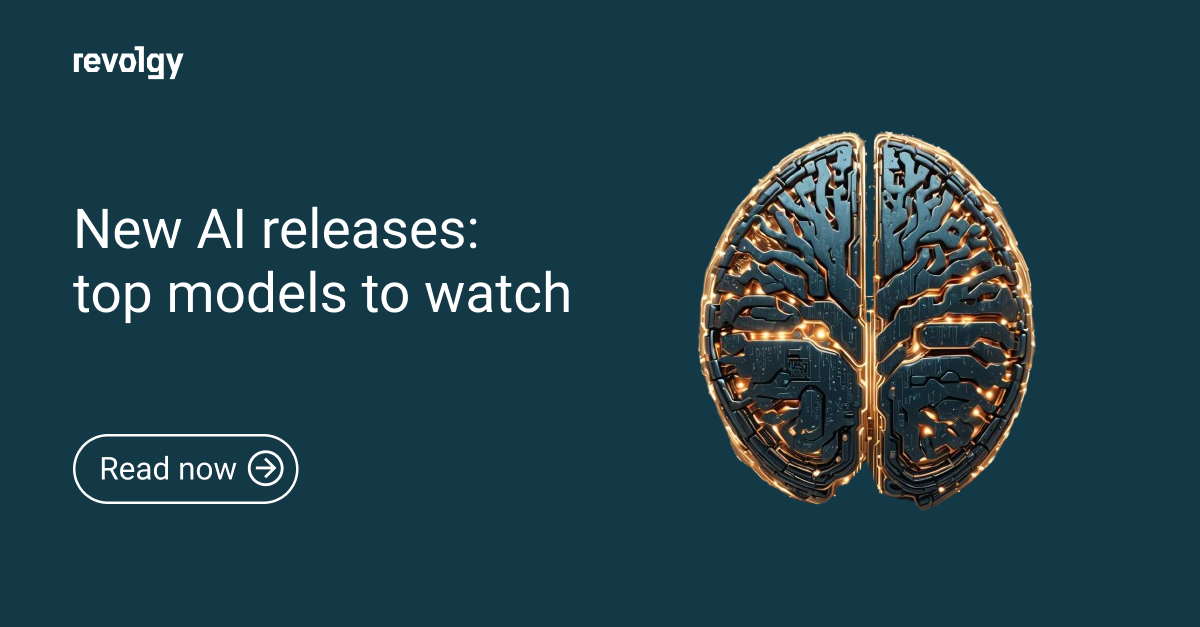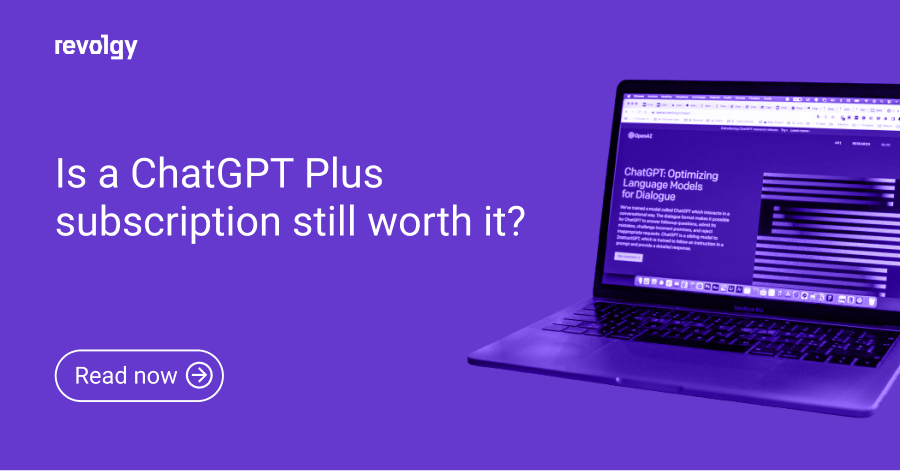Google Workspace, Security, AI
ChatGPT vs. Gemini vs. DeepSeek: Which AI assistant is the best?
AI chatbots are everywhere now — writing, coding, brainstorming, and occasionally making up facts with too much confidence. Everyone seems to be creating their own chatbot, but not all AI is created equal, for various reasons.
ChatGPT, Gemini, and DeepSeek are three of the biggest names at the moment, and we decided to compare their strengths and weaknesses. If you’re considering using AI within your organization, which one should you go for? Let’s take a closer look.
What ChatGPT, Gemini, and DeepSeek have in common
Even though they each have their own characteristics, these three AI models have a lot in common.
First, they’re all designed for human-like conversations. So if you need help answering questions, coming up with new ideas, or writing a report, they’re built to understand and respond in a way that feels natural. They also support text-based interactions, meaning you can type in a prompt and get a response. But Gemini and ChatGPT go even further, handling not just text but also images and audio, while DeepSeek sticks to text-based tasks for now.
Another big similarity is content creation. All three can write text, summarize information, and even help with coding. They’re used for research, learning, and problem-solving across different fields. Plus, they all offer free plans, so you can try them out before deciding if a paid version is worth it.
On the practical side, these AI models can browse the web for real-time information — though they pull from different sources (Gemini uses Google Search, while ChatGPT relies on Bing).
They also have varying levels of built-in safety measures to prevent harmful or unethical content… but we’ll get to that later.
ChatGPT is the AI that talks like you do
ChatGPT, developed by OpenAI, is a generative pre-trained transformer (GPT) model that excels in natural language processing. It has been refined over multiple versions, with GPT-4 being a flagship model (there are rumors about GPT-5 coming this year). However, GPT-4o is the most recent model, with a smaller, more cost-effective version called GPT-4o Mini also available.
It’s trained on a massive amount of text from the internet. While ChatGPT can process some images, it’s not a core feature like it is for Gemini, but rather more of an add-on capability.
Plus, ChatGPT now includes web browsing functionality, allowing it to access and process real-time information.
Strengths:
- Excels in conversational AI, text generation, and structured content.
- Highly adaptable in tone.
- Offers a robust ecosystem with APIs, plugins, and extensive community support.
- Customizable.
- Strong for SEO tasks, content repurposing, and text transcription.
- It is strong in handling complex prompts and providing detailed explanations for research.
Weaknesses:
- Primarily text-based; lacks native multimodal capabilities.
- Prone to generating incorrect or biased information.
- Higher computational costs for large-scale applications.
- While good at content creation, it is not as strong with creative content as Gemini.
Gemini is built for more than just text
Gemini is Google DeepMind’s answer to OpenAI’s ChatGPT. Unlike its competitor, Gemini was designed from the ground up to be multimodal — meaning it doesn’t only work with text, but also images, audio, and video. This makes it great for things like analyzing videos or generating images.
Gemini is different because it connects directly to how your business already works. It fits right into Google Workspace, so you can use AI with tools like Docs and Sheets.
Plus, it has built-in safety features to help avoid mistakes and bias, making it a smart choice for businesses.
Strengths:
- Processes text, images, audio, and video natively.
- Strong ethical considerations and safety measures.
- Integrated with Google’s tools, making it ideal for productivity applications.
- Best AI solution for businesses using Google Workspace.
- It is also better at creative text generation.
- It is able to simplify complex concepts, and provides well-researched answers with sources.
Weaknesses:
- Requires significant computational power, making it expensive.
- Less customizable than OpenAI’s models.
- Occasional inaccuracies and lack of citations
- Might be less confident and in-depth responses compared to ChatGPT.
However, it’s important to note that all LLMs are prone to hallucinations and should be fact-checked. It’s a common issue with all large language models.
DeepSeek is powerful, yet high-risk
DeepSeek is known for being fast and inexpensive. This makes it attractive to people who want to try AI without spending a lot of money. However, there’s a big problem: security.
Our partner Wiz discovered a serious security issue. They found that private information connected to DeepSeek, including chat histories, passwords, and other sensitive details, was exposed. This means that if you use DeepSeek, your information might not be safe, which should be a major concern for businesses or anyone dealing with private data.
While some parts of DeepSeek might be freely available, the main AI model itself is not open source, and the company that makes DeepSeek keeps the core technology secret. Plus, DeepSeek stated that training its V3 model cost $5.6 million, but this only covered pre-training. The total expenses are estimated to be much higher, close to $1.6B.
So, because of these security concerns, it’s important to be very careful when using DeepSeek. It might be okay if you’re just experimenting. But if you’re working with anything private or confidential, you should probably choose a different AI tool.
Who wins in different use cases?
Writing:
- ChatGPT: Structured, detailed, and well-organized content.
- Gemini: Creative content and simplified explanations, often with links to sources.
- DeepSeek: Factual, summarized explanations, less creative.
Coding:
- ChatGPT: Reliable, but sometimes struggles with complex logic.
- Gemini: Good, but less popular for developers.
- DeepSeek: Excels in complex coding challenges, sometimes outperforming GPT-4.
Brainstorming and creativity:
- ChatGPT: Generates multiple creative ideas and structured content.
- Gemini: Similar to ChatGPT but with added multimedia possibilities.
- DeepSeek: Writes full drafts quickly but lacks variation.
Research and learning:
- ChatGPT: Gives well-organized, detailed explanations.
- Gemini: Offers research-heavy responses with verifiable sources.
- DeepSeek: Provides brief, summarized explanations; limited public information compared to other models.
Cost efficiency:
- ChatGPT: More expensive due to higher computational demands.
- Gemini: Similar pricing to ChatGPT, but more value for businesses using Google Workspace.
- DeepSeek: The most cost-effective option.
Speed and response time:
- ChatGPT: Fast, but complex queries take longer.
- Gemini: Efficient, but response time depends on query complexity.
- DeepSeek: May take more time to respond, even when its response is concise.
Which one should you choose?
Choosing the right AI chatbot depends on your specific needs.
ChatGPT excels in conversational tasks and offers a rich ecosystem. Gemini shines with its multimodal capabilities and integration with Google Workspace, making it a strong contender for businesses already using Google tools. DeepSeek is the most cost-effective option, but its serious security vulnerabilities make it a risky choice for anyone handling sensitive data. Carefully weigh these factors before making a decision.
Want to learn more about Gemini and how it can help your business? Revolgy, a Google partner, offers training courses to teach you everything you need to know. We’ll show you how to use Gemini with Google Workspace so you can work smarter and faster. Our training is easy to understand, even if you’re not a tech expert. Contact us today to learn more about our Gemini training and how it can benefit your team.
Read next: Get started with Gemini for Google Workspace
Download ebook: Prompt Gemini like a Pro 101



